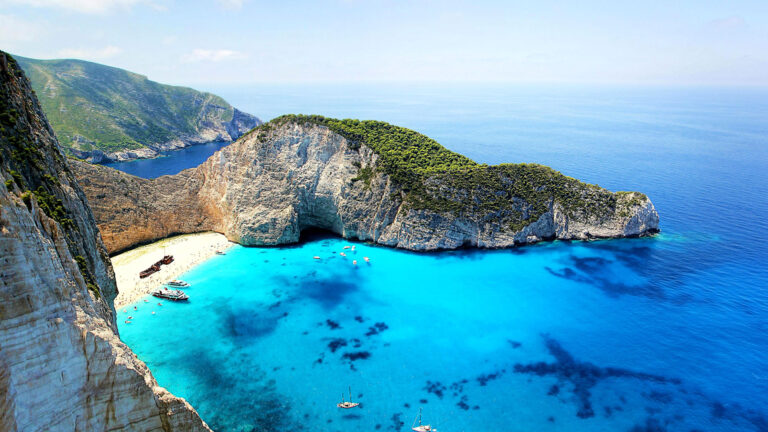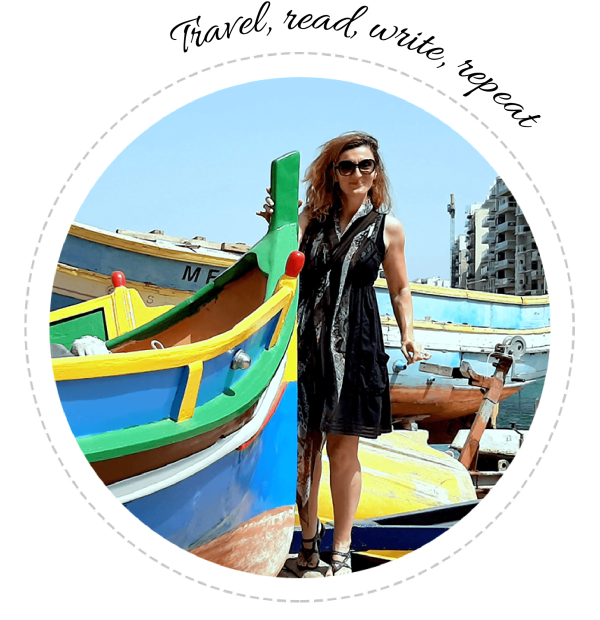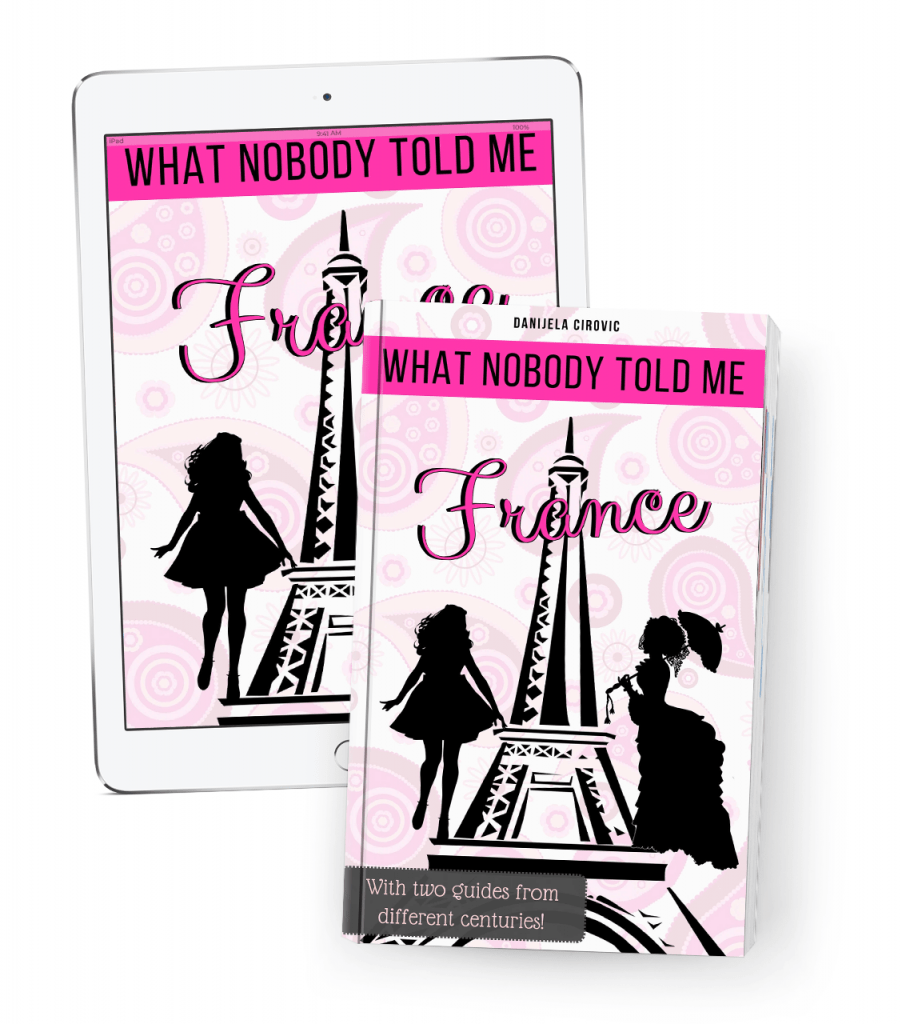
If you need a freelance travel writer or you would like to see your country, city, flight, etc., presented on the blog, drop me an email.
Find our more on Freelance Travel Writer page.
*I was fortunate enough to travel to Syria and see the country in 2008, three years before the war broke out. This homage to Syria is a reminder, the story about the country with immense cultural heritage, posted here with the wholehearted wish for peace to be restored and cities rebuilt.
We continue our travel series about Syria with a focus on things to do in Damascus. Even though it is a large settlement and one of the oldest in the world, it is still quite different than you might expect.
If you enjoy having coffee outside (as we often do in Europe), in a cafe on the curb, you will have to put some effort into finding one in Damascus. At least that was the case before the war. I walked through numerous streets of the modern part of the city in 2008 only to come across restaurant signs hanging down from building walls.

Next to a large square with a huge fountain and an imposing sculpture, there was a name tag for a cafe with „all sorts of coffees to your taste“. I followed the sign and ended up in a small courtyard deep into the area between the buildings with a few tables. I asked for Nescafe and got a small kettle with boiling water, a small jar of sugar, the other one with coffee, and an empty cup. I was supposed to mix it, „to my taste“.
I guess you can have a coffee in small establishments where all the customers are local men, chatting, having tea, smoking narghile, and watching the passers-by. Well, I guess you can.

I also didn’t know that I would have to pay attention when it comes to prices as well. It happened very often back then. A tourist asked about the price of a teacup in a cafe. And the price usually differed from the one you got afterward when you wanted to pay. It could just happen that that tea got three times more expensive in half an hour.

Protesting won’t make any difference since the guy would only shrug like saying „It’s not my problem“.
Even though Syrians are famous for being extremely nice and hospitable, one just had to keep in mind that they were poor and trying to earn any pocket change they could (the average salary in 2008 was about 150 dollars).
Alcohol beverages could be found in hotels only. And one could not expect a variety of drinks. The most frequent one was the Barada local beer, named after the Damascus River, but I heard some foreigners mention a brand from Lebanon as well. In authentic Arabic restaurants with live music, one could only be served a non-alcoholic beer that tasted like a bitter soda tea.

The low economic standard was reflected in the city itself, which ended up quite untidy. A lot of buildings in the modern part of Damascus were neglected, and parks where people were resting in the shade were full of garbage.

They are strict when it comes to the dress code of their women who are often completely covered, but if you are a female tourist, it could easily happen that young Syrians would try to push through the crowds a bit closer than they should. The best advice is to avoid these „encounters“ since any reaction of yours will just be useless when guys disappear and blend into the crowd, even though you already started coursing out loud in your language!
Still, sometimes the tourists are not that polite as well. You can often hear European men protesting because their wives are stared at on the street, but then again, the jump right in front of every other covered Syrian lady just to take another photo – without asking.
Syrian men are the ones who might react to this kind of behavior.

It was not that hard to go around the city. There were pedestrian overpasses above almost every larger boulevard and one of the things to do in Damascus is certainly taking a walk around. It was useless to even bother to look for a map of the city. I even left a few people on the street puzzled when I asked them where to buy one. But, it was somewhat more interesting this way. You just have to go and explore – feeling lost almost all the time.

I came across street vendors of mulberry juice and coffee who poured it in a specific way and were dressed in traditional clothes. There was one at almost every corner.
Strolling along the thick walls of the Old City of Damascus Syria, I discovered small districts selling a specific type of goods. I turned into a small street and there was a neighborhood full of tiny stores with pipes, screws, and tools of all kinds. A bit further, after taking another random turn, I found myself at the market. vegetables, fruit, and meat all around. That was a tough crowd to squeeze through, bustling, haggling, pushing, jostling, and I had to watch my step.

In one of those small streets, there was a market that was open for the whole day. Merchants came at seven in the morning, buyers appeared a bit later, and it went on like that until late in the night. That day (it was Thursday if I remember it correctly, although I am not sure that the 24-hour market was reserved for Thursdays only), the bustle continued up until 1 am.

My hotel was on the same street and I heard a few tourists complaining the next morning that the market noise was to be heard until 3 am.
But, this was not a bad idea having in mind that raw food can’t be preserved easily in such a heat (and I was there in May).
Damascus and the whole of Syria before the war were covered in posters of President Bashar al Assad who took over the power from his father Hafez. The family has been ruling the country since the 1970s. If you had a chance to travel to other Arab countries before, this would not be such a surprise since you probably saw pictures of a king or sheik in the United Arab Emirates or Jordan, smiling from posters all around.

It was similar here. In Damascus, for example, I walked by a building with every one of the windows closed and covered with portraits of the president-father and the president-sun. Their smiling faces appeared before me from every street pole I came across, every shop window, and even every car. The president was also greeting you from the posters at the border, saying „Thanks for visiting“ and „Have a good trip“.
Next: ALEPPO CITADEL
The full Homage to Syria SERIES
If you need a freelance travel writer or you would like to see your country, city, flight, etc., presented on the blog, drop me an email.
Find our more on Freelance Travel Writer page.
I am looking forward to working with you.




12 responses
It’s always like that, you wished you went somewhere earlier before a bad thing happens and then you regret it after you can’t go. We really hope it gets better there and one day we will be able to go again safely… Love the bus front and also people being all chill and relaxed. Good times.
Oh, I know, feel the same way about Iraq. Now I’m waiting for things to settle down.. again, in order to visit.. one day. Thanks, so glad you’ve enjoyed the post!
Beautiful pictures! And thank you for sharing. I love reading about other places around the world that aren’t the “typical” destinations!
Oh, thank you for your kind words. Glad you like it! 🙂
I love trying coffee sitting outdoors. Damascus looks great from the pictures although sounds a bit traditional and orthodox as well. The markets must be a good experience!
It was, but that was a part of its charm. 🙂 And yes, feel free to check out one of the previous posts in the series, it’s a lot about the Arabic souk in the Old Town. 😉 Thanks!
It is disheartening to even how a country once a lived a normal life and is now war-ridden. Hope the conditions get better soon as so many people are suffering due to the war :(. Great story and beautiful captures, wish we get to see the beautiful side of Syria soon.
Oh yes, I agree, such a misfortune. Thanks!
It is a shame our politics be so stupid, unfortunately, we can’t visit some countries because of them, because they want power and money. I am happy that you have been before and enjoyed the country. Unfortunately, a lot of tourists are not polite, because that some local people don’t like tourists. Many people think they are traveling in a Zoo, where they can take pictures without ask, be rude, etc… In travel I already complained with some tourists because they were doing it.
You are so right, it’s a shame what’s happening in the world because of politics, and unfortunately, it’s affecting all of us, one way or another. And I do know how tourists can be rude sometimes, when actually the only way to travel is to respect the country, people and local customs! Only than you can really appreciate the time spent there. Thanks for commenting! 🙂
A nice insight into Damascus and life out there, Yes, some of these cultural differences could become quite embarrassing. Looks like the life is easy paced. Hope the situation becomes peaceful there and I am able to visit it. I would also like to go to Aleppo to see the largest Souq in the world.
Hope we’ll all be able to go one day! And feel free to check out the next Glimpse in series (on Tuesday), since it’s about the Aleppo souk. 😉 Thank you Nisha!